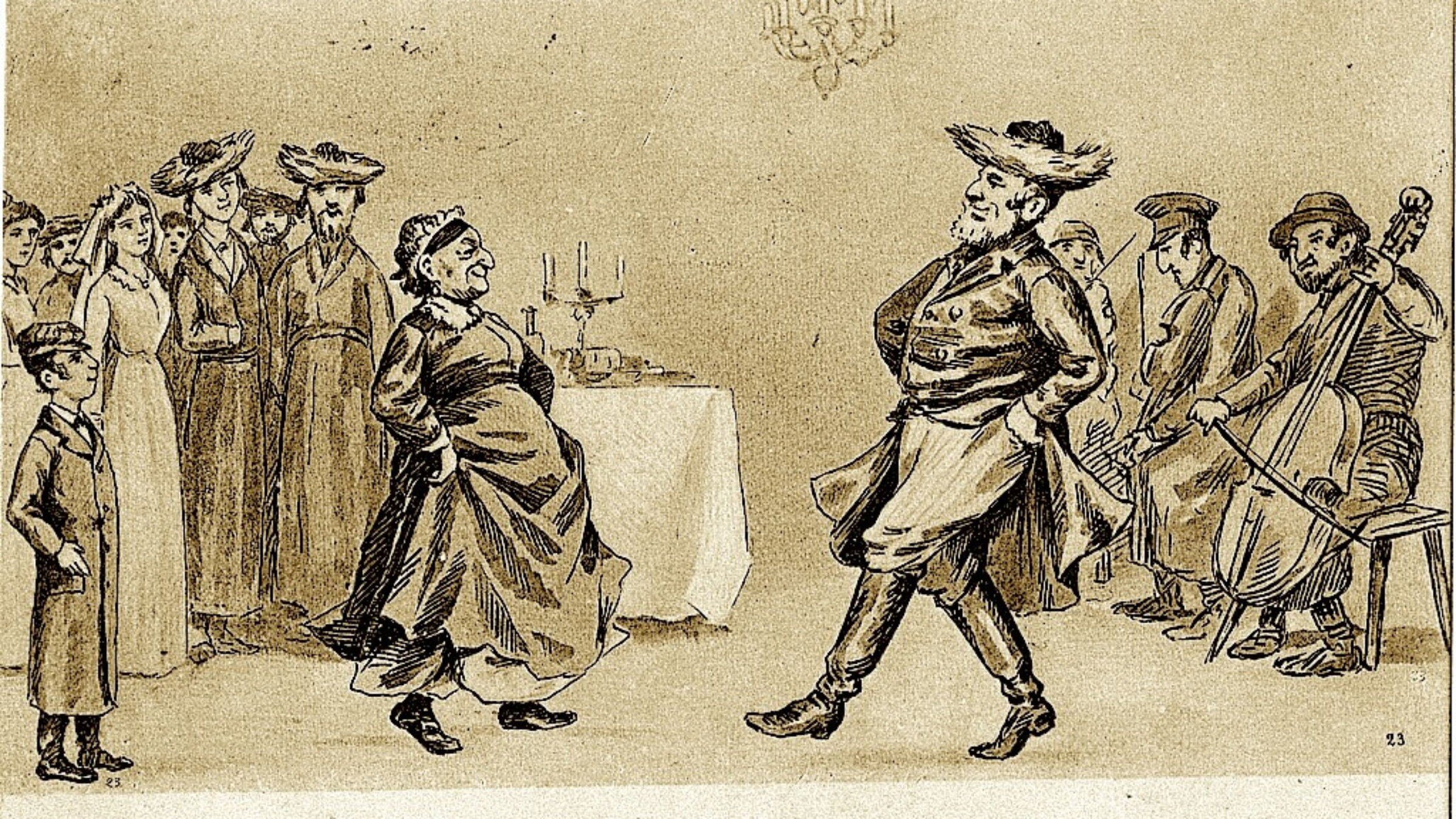Yiddish song workshop among YIVO’s online mini-courses in English
Other courses will cover the world of Ashkenazi cooking and desire in Yiddish literature.

Guests dancing the Yiddish “mekhutn-tants” accompanied by Jewish folk musicians Photo by getarchive.net
People who want to learn more about Yiddish culture can now sign up for several online courses at YIVO. The classes will be taught in English.
In the course “Seasons in Yiddish Song,” the Yiddish instructor and singer Paula Teitelbaum will introduce students to folk songs that were passed down from generation to generation, as well as songs written by renowned poets and composers. The material will cover different genres, time periods and historical contexts. All song texts will be accessible in Yiddish, English transliteration and translation to accommodate all levels of Yiddish.
Yiddish food scholar and chef Eve Jochnowitz will provide a glimpse into the history of Eastern European Jewish cooking in the course Introduction to Ashkenazi Jewish Foodways. She will discuss the ingredients and techniques of preparing these foods as determined by the Jewish ritual calendar, the dietary laws, the produce of the local soil and the cuisines of neighboring peoples.
Jewish music researcher Michael Luchin will teach the course Outside the Synagogue: Traditional Songs and Nigunim of Eastern Yiddish Speakers where he will discuss the distinctive musical repertoires that flourished from early modernity until the Holocaust. Among the most prominent were Yiddish folk songs, klezmer instrumental music, cantorial singing, paraliturgical songs, and, beginning in the 18th century, Hasidic nigunim.
There will also be a course called Desire in Yiddish Literature taught by Yiddish literature scholar Anita Norich about stories that touch on emigration and immigration, nationalism, socialism, religious belief and the rejection of religious observance. Among the authors: Sh. Y. Abramovitch, Tsilye Dropkin, Yankev Glatshteyn, Kadya Molodovsky and Malka Heifetz Tussman.
A message from our Publisher & CEO Rachel Fishman Feddersen
I hope you appreciated this article. Before you go, I’d like to ask you to please support the Forward’s award-winning, nonprofit journalism during this critical time.
At a time when other newsrooms are closing or cutting back, the Forward has removed its paywall and invested additional resources to report on the ground from Israel and around the U.S. on the impact of the war, rising antisemitism and polarized discourse.
Readers like you make it all possible. Support our work by becoming a Forward Member and connect with our journalism and your community.
— Rachel Fishman Feddersen, Publisher and CEO